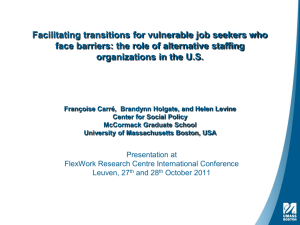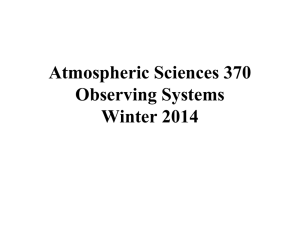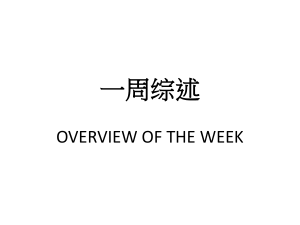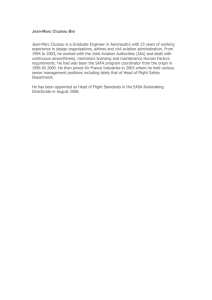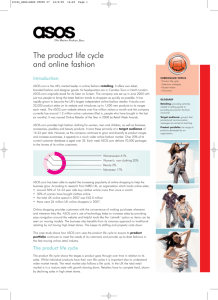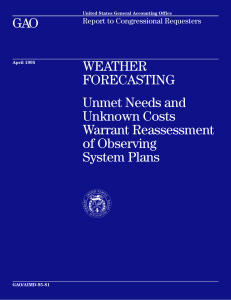Air Security Officers: making our skies safe
advertisement
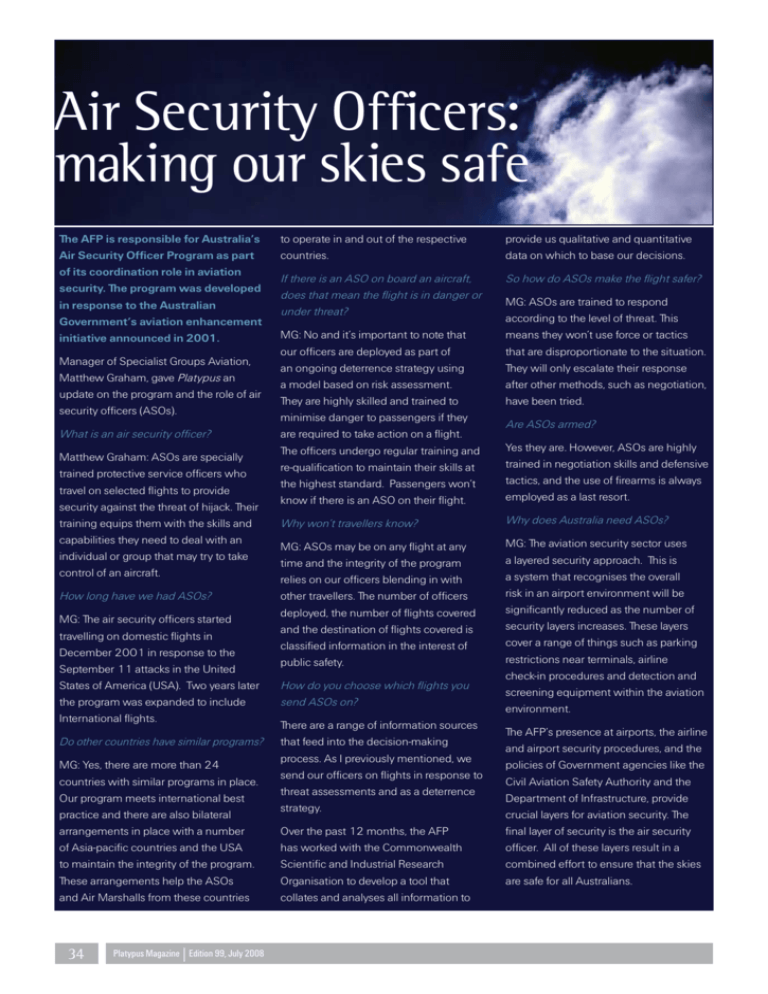
Air Security Officers: making our skies safe The AFP is responsible for Australia’s to operate in and out of the respective provide us qualitative and quantitative Air Security Officer Program as part countries. data on which to base our decisions. If there is an ASO on board an aircraft, So how do ASOs make the flight safer? of its coordination role in aviation security. The program was developed in response to the Australian Government’s aviation enhancement initiative announced in 2001. Manager of Specialist Groups Aviation, Matthew Graham, gave Platypus an update on the program and the role of air security officers (ASOs). What is an air security officer? Matthew Graham: ASOs are specially trained protective service officers who travel on selected flights to provide security against the threat of hijack. Their training equips them with the skills and capabilities they need to deal with an individual or group that may try to take control of an aircraft. How long have we had ASOs? MG: The air security officers started travelling on domestic flights in December 2001 in response to the September 11 attacks in the United does that mean the flight is in danger or under threat? means they won’t use force or tactics our officers are deployed as part of that are disproportionate to the situation. an ongoing deterrence strategy using They will only escalate their response a model based on risk assessment. after other methods, such as negotiation, They are highly skilled and trained to have been tried. minimise danger to passengers if they are required to take action on a flight. The officers undergo regular training and re-qualification to maintain their skills at the highest standard. Passengers won’t Our program meets international best practice and there are also bilateral trained in negotiation skills and defensive tactics, and the use of firearms is always Why won’t travellers know? Why does Australia need ASOs? MG: ASOs may be on any flight at any MG: The aviation security sector uses time and the integrity of the program relies on our officers blending in with other travellers. The number of officers deployed, the number of flights covered and the destination of flights covered is classified information in the interest of public safety. send ASOs on? countries with similar programs in place. Yes they are. However, ASOs are highly employed as a last resort. the program was expanded to include MG: Yes, there are more than 24 Are ASOs armed? know if there is an ASO on their flight. How do you choose which flights you Do other countries have similar programs? according to the level of threat. This MG: No and it’s important to note that States of America (USA). Two years later International flights. MG: ASOs are trained to respond There are a range of information sources that feed into the decision-making process. As I previously mentioned, we send our officers on flights in response to threat assessments and as a deterrence strategy. a layered security approach. This is a system that recognises the overall risk in an airport environment will be significantly reduced as the number of security layers increases. These layers cover a range of things such as parking restrictions near terminals, airline check-in procedures and detection and screening equipment within the aviation environment. The AFP’s presence at airports, the airline and airport security procedures, and the policies of Government agencies like the Civil Aviation Safety Authority and the Department of Infrastructure, provide crucial layers for aviation security. The arrangements in place with a number Over the past 12 months, the AFP final layer of security is the air security of Asia-pacific countries and the USA has worked with the Commonwealth officer. All of these layers result in a to maintain the integrity of the program. Scientific and Industrial Research combined effort to ensure that the skies These arrangements help the ASOs Organisation to develop a tool that are safe for all Australians. and Air Marshalls from these countries collates and analyses all information to 34 Platypus Magazine | Edition 99, July 2008

